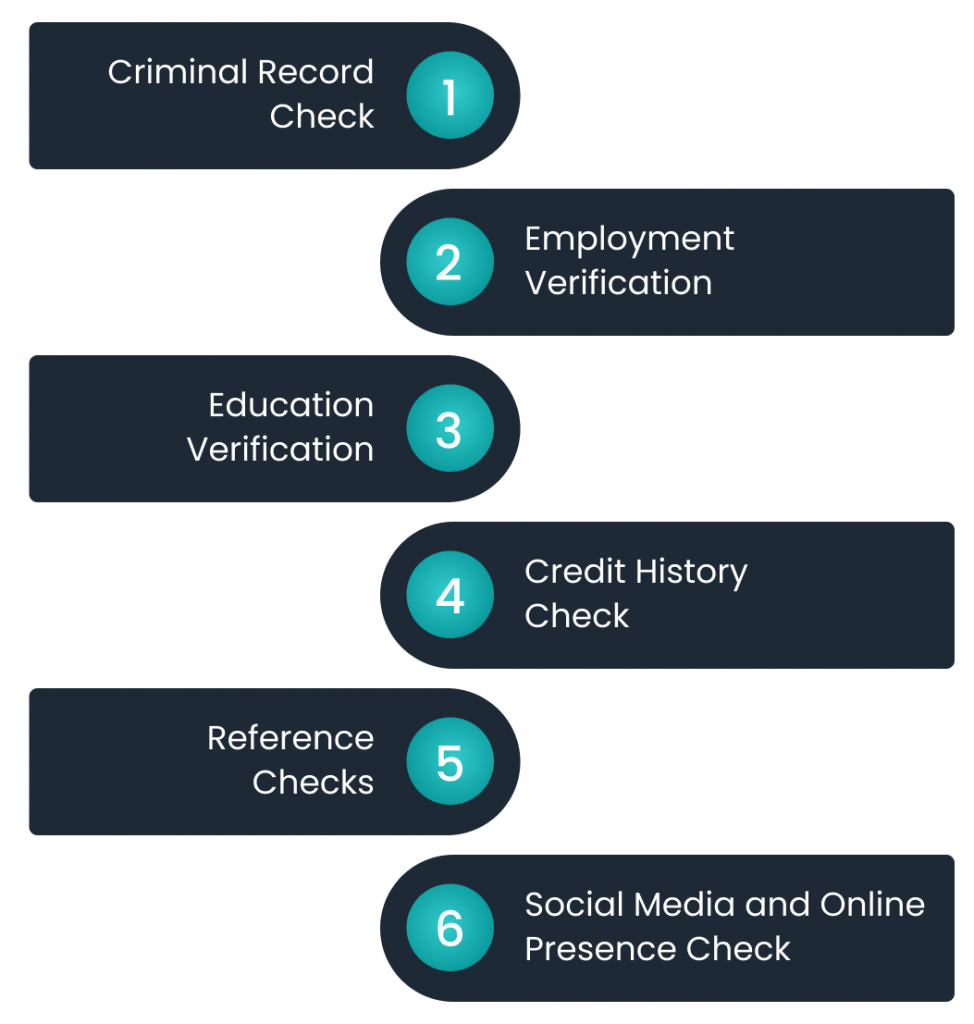Table of Contents
ToggleIn the fast-paced and customer-centric retail industry, trust and reliability are paramount. As retailers strive to maintain a high standard of service and security, ensuring that employees, contractors, and partners are trustworthy is crucial. One of the most effective ways to mitigate risks such as theft, fraud, and workplace misconduct is by implementing retail background checks. These checks are an integral part of the hiring process, ensuring that retail businesses hire individuals who align with their values and operate with integrity.
This guide explores the importance of retail background checks, the various components involved, and how retailers can leverage them to create a safe, productive, and trustworthy environment for both employees and customers.
Why Are Retail Background Checks Important?
The retail industry faces numerous risks that can lead to financial and reputational damage. Retail employees, especially those working directly with customers or handling cash, products, and sensitive information, can pose significant risks if their backgrounds are not properly vetted. Here are some key reasons why background checks are vital in retail:
1. Prevention of Theft and Fraud
Retailers are particularly vulnerable to internal theft. Retail background checks help identify individuals who have been involved in theft, fraud, or any other criminal activity, preventing them from causing harm to your business.
2. Protecting Customer Data and Privacy
With increasing concerns around data security and privacy, especially in the digital retail landscape, it’s essential for retailers to protect customer data. Employees who handle sensitive customer information, such as payment details or personal records, must have trustworthy backgrounds. Background checks ensure that only those with clean records and high ethical standards are entrusted with such sensitive roles.
3. Compliance with Regulations
The retail industry is highly regulated, with numerous compliance standards in place, ranging from health and safety regulations to financial reporting requirements. Retailers need to ensure that their employees understand and adhere to these standards. Background checks help confirm whether an applicant has a history of non-compliance with industry regulations or laws, such as environmental violations or previous work-related misconduct.
4. Ensuring a Safe Work Environment
A safe and respectful work environment is essential for any organization, especially in retail, where employees often work closely together. Background checks can help identify any red flags related to violent behavior, harassment, or other factors that could disrupt workplace harmony.
5. Reducing Turnover and Recruitment Costs
Hiring the wrong candidate can lead to high turnover rates, which in turn leads to increased recruitment and training costs. By conducting thorough background checks, retailers can reduce the likelihood of hiring unsuitable candidates, thereby saving money and ensuring better long-term employee retention.
Types of Retail Background Checks

There are various aspects of a candidate’s background that should be verified during the hiring process. Here are the most common types of background checks used in the retail industry:
1. Criminal Record Check
A criminal background check is a fundamental part of any retail background check. Retailers need to verify whether an applicant has a criminal history that could pose a risk to the business. This includes checking for previous convictions related to theft, fraud, assault, or other serious offenses.
- Purpose: To identify individuals with a history of criminal behavior, particularly those that could impact the safety and security of the workplace.
- Key Considerations: Retailers should focus on convictions related to theft, embezzlement, or violent offenses that could affect workplace morale and safety.
2. Employment Verification
Employment verification helps confirm that a candidate’s job history is accurate. This includes verifying past employers, job titles, dates of employment, and reasons for leaving. This type of background check helps assess whether an individual has the experience and qualifications they claim.
- Purpose: To validate the candidate’s work experience and ensure they have the skills and reliability they claim to possess.
- Key Considerations: Retailers should be particularly cautious of candidates with unexplained gaps in employment or those who provide conflicting information about their previous roles.
3. Education Verification
Retailers should verify a candidate’s educational background, particularly for roles that require specific qualifications or certifications. This check helps ensure that the candidate’s academic credentials match the information provided on their resume.
- Purpose: To confirm the authenticity of academic qualifications, especially for roles that require specific educational requirements, such as management positions.
- Key Considerations: Cross-check degrees, certifications, and diplomas with the respective institutions.
4. Credit History Check
For retail positions that involve handling cash, managing financial transactions, or overseeing store budgets, a credit history check can be vital. This check helps determine whether a candidate has any financial problems or a history of poor financial management, which could lead to potential risk for theft or fraud.
- Purpose: To assess a candidate’s financial responsibility and stability, especially for roles that involve monetary transactions.
- Key Considerations: Candidates with a poor credit history may raise concerns, but retailers should be cautious of making decisions solely based on this information. It’s important to evaluate the context of the financial issues.
5. Reference Checks
Checking a candidate’s references provides valuable insights into their work ethic, reliability, and behavior in previous roles. References are usually obtained from former employers, colleagues, or supervisors.
- Purpose: To validate a candidate’s character, work performance, and interpersonal skills.
- Key Considerations: Ensure that references are from credible sources and relevant to the role for which the candidate is applying.
6. Social Media and Online Presence Check
In the digital age, many hiring managers turn to social media platforms to get an insight into a candidate’s personality and behavior outside of the workplace. Social media checks can provide valuable information regarding a candidate’s character and professionalism.
- Purpose: To identify any potential red flags in a candidate’s online behavior or reputation that may affect the company’s image.
- Key Considerations: Ensure that the check focuses on relevant professional networks like LinkedIn rather than personal accounts, which may not always reflect the candidate’s professional demeanor.
How Retailers Can Implement Effective Background Checks
While background checks are essential, retailers need to ensure they are conducted effectively and within legal boundaries. Here are some best practices for implementing background checks:
1. Obtain Candidate Consent
Always obtain written consent from the candidate before conducting a background check. This not only ensures transparency but also complies with privacy laws and regulations in various regions.
2. Stay Compliant with Legal Guidelines
Retailers must be aware of the legal frameworks governing background checks in their region. In India, for instance, background checks must comply with the Information Technology Act and the Privacy Protection Laws. Employers should also be cautious of how they use the information obtained from these checks to avoid discriminatory hiring practices.
3. Use a Reliable Background Verification Service
Partnering with a trusted third-party background verification service can streamline the process and ensure that all aspects of the background check are thorough and up to date. Professional services can also ensure compliance with all legal and regulatory requirements.
4. Tailor Background Checks to Specific Roles
Not all retail positions require the same level of scrutiny. For instance, employees handling financial transactions or customer data may need more extensive checks compared to those in non-customer-facing roles. Retailers should tailor their background checks to suit the specific needs of each role.
5. Regularly Update Background Checks
Background checks shouldn’t be a one-time event. Regular checks, especially for employees in sensitive roles, can help detect any emerging risks or discrepancies in their history. This proactive approach can prevent issues before they escalate.
Retail background checks are a vital component of the hiring process in the retail industry. With increasing risks of theft, fraud, and workplace misconduct, thorough background checks help businesses hire the right candidates, ensuring a safe, productive, and trustworthy environment. By validating educational qualifications, verifying employment history, conducting criminal record checks, and more, retailers can significantly reduce the risks posed by fraudulent or unsuitable employees.
For retailers looking to safeguard their business, adopting comprehensive and legally compliant background checks should be a priority. With the right processes in place, businesses can not only reduce potential risks but also improve their overall hiring strategy, leading to a stronger, more efficient workforce.





Leave a Reply